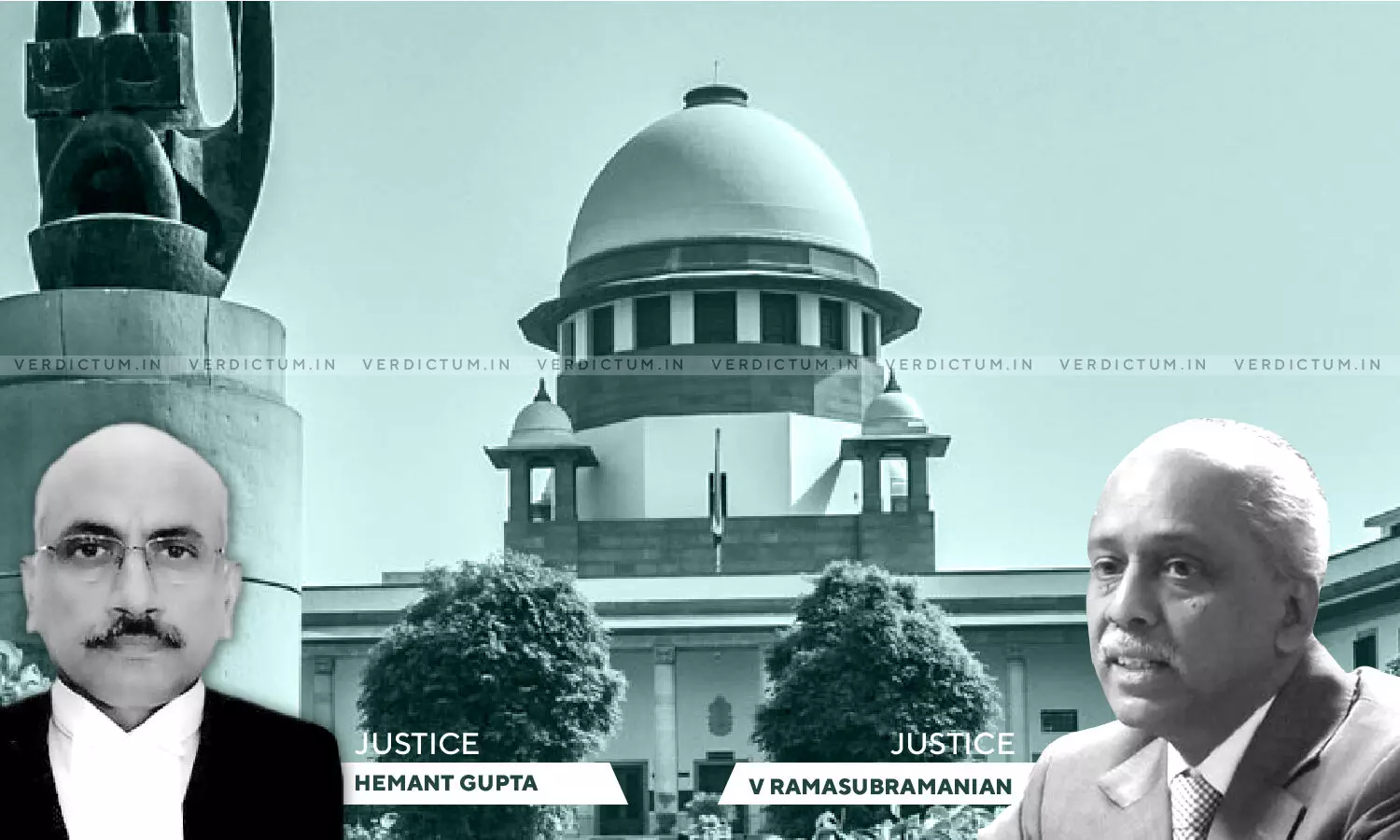
Exclusion Of One Of Natural Heirs From Bequest Does Not Mean There Are Suspicious Circumstances Surrounding Will - SC
 |
|A two-judge bench of Justice Hemant Gupta and Justice V. Ramasubramanian held that "the exclusion of one of the natural heirs from the bequest, cannot by itself be a ground to hold that there are suspicious circumstances."
The Court made the following crucial observations:
"The law relating to suspicious circumstances surrounding the execution of a Will is already well settled and it needs no reiteration. It is enough if we make a reference to one of the recent decisions of this Court in Kavita Kanwar vs. Mrs. Pamela Mehta and Ors. where this Court referred to almost all previous decisions right from H. Venkatachala Iyengar vs. B.N. Thimmajamma. But cases in which a suspicion is created are essentially those where either the signature of the testator is disputed or the mental capacity of the testator is questioned. This can be seen from the fact that almost all previous decisions of this Court referred to in Kavita Kanwar (supra) list out circumstances, which in the context of the lack of sound and disposing state of mind of the testator, became suspicious circumstances. In the matter of appreciating the genuineness of execution of a Will, there is no place for the Court to see whether the distribution made by the testator was fair and equitable to all of his children. The Court does not apply Article 14 to dispositions under a Will."
In this case, probate was granted by the District Court in respect of two last Wills and Testaments (one by father and another by mother). The High Court set aside the same in an appeal under Section 384 of the Indian Succession Act, 1925. Hence, a set of legatees claiming under the Will find an appeal before the Supreme Court.
Mr. V. Prabhakar appeared for the appellants while Mr. Jayanth Muthraj, Senior Advocate appeared for the respondents.
The couple, Mannar Reddiar and Adhilakshmiammal had two sons by name V.M. Chandrasekaran and V.M. Sivakumar and a daughter by name Kalavathy.
The mother left a Will behind bequeathing the properties purchased by her and properties that she got from her maternal uncle in favour of her two sons. The daughter was not given any share.
The father left behind a Will bequeathing his properties in favour of his two sons and grandchildren and the daughter was not allotted any property. Reasons, on this behalf, were furnished in the Will.
The eldest son died subsequently leaving behind his wife and two sons being the appellants before the Apex Court.
The daughter and surviving son filed a suit for partition in the District Court. The appellants (wife and son of deceased eldest son) filed a probate petition for grant of probate. The petition was contested by the daughter and other son. The District Court granted probate.
The daughter and other son filed an appeal before the High Court. The appeal was allowed on the ground that there are suspicious circumstances surrounding the execution of both Wills. Hence, the instant appeal.
The Court noted that none of the circumstances created a suspicion. The Court on facts made following observations:
"The signature of the mother Adhilakshmiammal in Exhibit P1 (Will) is not disputed. It was executed on 30.01.1995 and her husband namely Mannar Reddiar was one of the attestors to the Will. In fact the reading of Exhibit P1 (Will) goes to show that the daughter Kalavathy was given in marriage to a bank employee way back in the year 1970. According to Exhibit P1 (Will), the daughter was provided 50 sovereigns of gold jewellery at the time of the wedding. She was also given various amounts at different points of time totaling to Rs.75,000/. It was further claimed in Exhibit P1 (Will) that the mother gave Rs.25,000/ to the daughter Kalavathy for the purpose of purchase of two plots of land at Ambattur, in the outskirts of Chennai. The Will also mentions that the daughter's daughter was given in marriage to the second son V.M. Sivakumar. This is the reason why the second son V.M. Sivakumar joined hands with the daughter Kalavathy. Exhibit P1 also makes a mention about the sum of Rs.40,000/paid towards the discharge of a debt incurred by Kalavathy's husband (son in law)."
The Court held that the High Court overlooked all these aspects. The Court noted that it was not even the case of respondents that testators were not in a sound and disposing state of mind.
The Court noted that there was no delay on part of the appellants in seeking probate.
The Court observed that the High Court made a mountain out of a molehill. Hence, the appeal was allowed and the judgment of the High Court was set aside. The judgement of the District Court was restored.Click here to read/download the Judgment